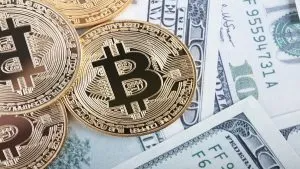There’s been a lot of hype and questions about Ordinal Inscriptions lately.
What exactly are Ordinal Inscriptions? The simple answer is NFTs (non-fungible tokens) that can be issued on the Bitcoin blockchain.
However, it is different from conventional NFT. For example, unlike NFTs on the Ethereum blockchain, which rely on mutable off-chain metadata, Ordinals NFTs can record all data directly on-chain.
This shortcoming of Ethereum NFTs is why software engineer Casey Rodarmor thought Ethereum NFTs were incomplete and launched the Ordinals protocol.
Those who believe Ordinals NFTs will cause significant changes in the Bitcoin community and improve the technology behind NFTs are pleased with the development.
Still, the question I get from a lot of people boils down to “Is it good for Bitcoin? Is it bad?”
Are you against change?
Despite the potential benefits of Ordinals, there is a lot of debate about whether or not it is a “good use” of blockspace.
The problem arises that the more Ordinals NFTs are created, the higher the cost of Bitcoin transactions. Ordinals brings extra non-financial data onto the Bitcoin blockchain, delaying on-chain confirmation times. The data includes images, sounds, games, and the like.
Those unfriendly to the Ordinals believe that it will hinder Bitcoin’s scaling and pervasive power across the globe.
Recording NFTs on the Bitcoin blockchain could threaten Bitcoin’s biggest use case of currency.
Ordinals affect the fungibility of sats, which represent 1/100 millionth of a Bitcoin in the Bitcoin network. If all Satoshi are not equal, they will lose their important character as currency.
Ordinals could change the value of Bitcoin as a currency. For example, think of rare coins worth collecting. A one-cent coin has a face value of one cent, but can be worth more than a dollar among collectors, depending on the design and year of issue.
There is a debate raging right now over whether individual bitcoins should be considered of equal value and needs to be fully understood.
Bitcoin is a currency and the biggest and most important use case that affects most people in the world. That’s why I think Ordinals and other known and emerging use cases will remain niche.
I think this period is exciting, but like many booms, I also think it’s going to fade. I think that the applications that many people want to use Bitcoin’s block space are not necessarily Ordinals.
Bitcoin is a currency. We believe that any changes to the Bitcoin protocol should be slow and methodical.
The final decision is the market
One of the unsubstantiated and overstated claims I often hear is that Bitcoin will never evolve or change.
Does the claim contain a sliver of truth? Of course it is. When trying to build the next global monetary system, don’t follow the popular Silicon Valley motto, “act fast and break.” Leave that to venture capital-funded startup tech companies.
That said, there have also been upgrades that demonstrate the need and benefits of change. For example, the Lightning Network could accelerate Bitcoin commerce and everyday use.
Ordinals is another example of an attempt to change the Bitcoin blockchain. The latest upgrade, called “Taproot,” allows Ordinals to write to Bitcoin blocks.
The beauty of Bitcoin is that it is permissionless and the ultimate free market. This fosters change.
At the same time, it is also a free and open market that determines whether there is demand and value for Ordinals. The permissionless nature of Bitcoin makes such competition possible.
Ordinals may stay if individual users want Ordinals to become a mainstay in the Bitcoin world. Bitcoin is governed by consensus rules. That’s why running nodes is so important and the “blocksize wars” were so fundamental to Bitcoin.
Ordinals is not an attack on Bitcoin, but it could start discussions about hard and soft forks. We believe that the most painful and difficult outcome of Ordinals will be a hard fork.
Important points for investors
For Bitcoin investors, the most important thing about Ordinals revolves around the unique properties of Bitcoin. Bitcoin is truly decentralized, whereas most, if not all, other cryptoassets are only nominally decentralized.
Because of its decentralized nature, developers are free to change Bitcoin’s current rule set. If demand exists and the change leads to rifts among bitcoin holders and the community, investors will have to choose what to do with their assets.
Once the hard fork goes live, you will have to decide whether to hold, sell, or buy the new tokens.
It may sound like a scary scenario, but I don’t think Ordinals will create that much friction or conflict in the Bitcoin world. Even if that happens, we can take a passive stance and leave it to the forces of the market.
It’s an open, permissionless protocol that allows things like this to happen, and it’s healthy in the long run.
It doesn’t matter if you think it’s ‘good’ or ‘bad’, it’s good that the Ordinals are being debated. Because Bitcoin can test its resilience and robustness. Such debates will continue as Bitcoin moves toward global adoption.
|Translation and editing: Akiko Yamaguchi, Takayuki Masuda
|Image: Shutterstock
|Original: Bitcoin NFTs Challenge the Blockchain’s Largest Use Case: Money
Bitcoin NFT Threatens Bitcoin’s Biggest Use Case “Money”[Column]| coindesk JAPAN | Coindesk Japan appeared first on Our Bitcoin News.




